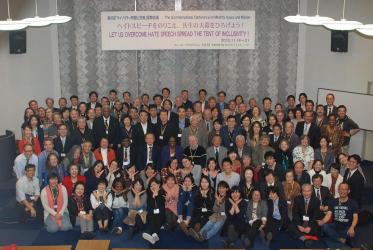Displaying 61 - 80 of 103
“Overcoming economic injustice” vision of WCC’s Athena Peralta
23 February 2017
During Lent, a “carbon fast” can honour God’s creation
09 February 2017
New videos help congregations hasten HIV response
20 October 2016
Religion: Way of war or path to peace?
30 June 2016
Winners of WCC photo contest announced
09 May 2016
Voices from HIV workshop reflect deep impact
07 April 2016
Consultation considers right to food in context of climate change
15 December 2015
Japanese churches discuss minority issues
01 December 2015
WCC praises Church of South India as a truly united church
26 November 2015














